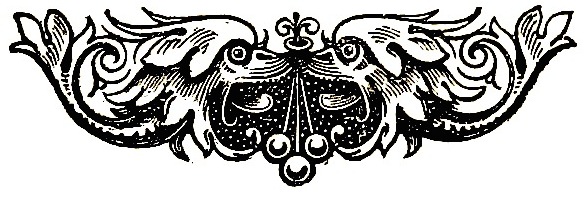| Jan/Feb 2015 • Poetry |
| Jan/Feb 2015 • Poetry |

A Love Story, Catalogued in Discarded Animals
The cats were euthanized in the divorce, weaponized in the years to come, an attack on new animals in new relationships. My moms' new chinchillas, both supposedly male, magically churned out babies, generations interbreeding in five feet of steel mesh. I wasn't supposed to touch, but one day I helped a newborn free a long back foot from the mesh when I got home. I was so gentle; she was so soft. But when the births went bad, the babies came out dead and misshapen, a lesson in which creatures simply don't belong together. And the dogs. One dead in a week, adopted when she was already dying. They replaced her, because what else do you do with a dead black dog? The chinchillas kept replacing their dead babies; the moms had already replaced the dead cats with newer, grayer models. For the new dog, also black, it was almost the end three years later when he bounced off the bumper of a Jeep, but he rolled and kept on running. I caught him in the middle of Austin Boulevard, which the moms had told me never to cross lest the West Side eat me. We tore apart the wire mesh commune, gave away the chinchillas and replaced them with a third dog, black and white. The black dog bit, and bit, and bit, and for years I begged them to recognize what he was, a brain that simply didn't belong, before they dropped him off at the vet one morning. They replaced him too, another effort to erase the broken.
Love and Sickness in the Time of ISIS
My boyfriend asks me what I think about the Dutch teens who went and joined the militants. They're pregnant and want to come home. I say there must have been something wrong in their lives long before they ran away to join the men with guns.
My father and I watch the news and see the young American woman who was going to join them through Tunisia and be a nurse and take up arms if necessary. She was intercepted by the FBI. He says it makes him think of his little sister, who met a man on the internet, like she'd met so many men on the internet before, and up and left her husband and her son and then up and left the country for Tunisia. This was before we cared about ISIS and after decades of medications and dangerous decisions. She was gone for a month and a half. I watched her vigilantly on Facebook, stalked her friends, tried to follow the chains of people into an understanding of how this could happen to a middle-aged woman from small-town Kansas, but she was quiet, and then she came home. We're sure she's on the lists that people keep, her name lurking in the hard drives of Homeland Security. People say we look alike. I've never seen it, which is perhaps an aggressive stance.
My aunt's not living at the farm anymore. Her mother and her ex-husband and her son live there, where she left them. I've heard that roofing nails occasionally appear scattered at the end of the gravel driveway, casual terrorism until you remember that people fly down that country road, ready to launch themselves and anybody else beyond.